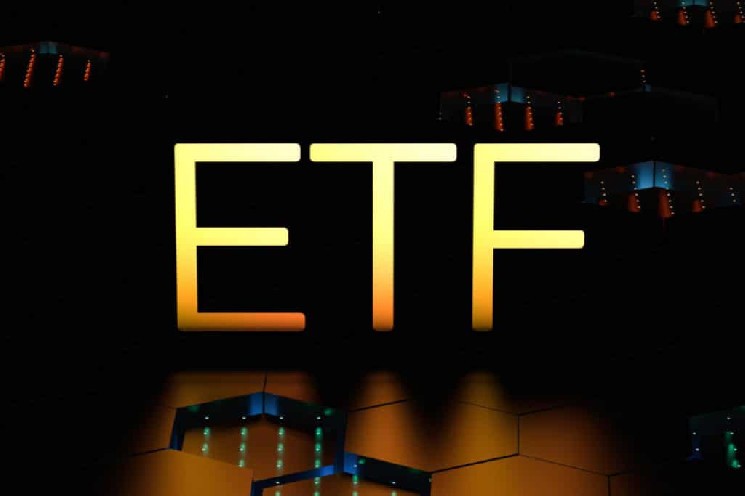The state of play on crypto ETFs

Crypto assets are very unique, nontrivial to handle, and unregulated, whereas ETFs come to the rescue of those less experienced.
This leads many among those who operate in the financial markets professionally to prefer not to manage them, if at all.
However, there are various financial derivative products that allow one to take a position on cryptocurrency prices even without having to buy, own and handle them.
Summary
- Crypto ETFs and the current relationship with regulators
- The usefulness of crypto ETFs
- Returns
- Managers
- The exchanges on which crypto ETFs are tradable
Crypto ETFs and the current relationship with regulators
One of the most widely used derivative products for trading cryptocurrencies are ETFs.
ETFs are exchange-traded funds, which are funds whose shares are tradable on an exchange.
There are basically two types of crypto ETFs: those based directly on cryptocurrencies, and those based on crypto derivative products.
The fact is that in the world’s largest financial market, namely the US, local regulators have not yet wanted to approve any ETFs based directly on cryptocurrencies. Curiously, however, they have agreed to approve ETFs based on crypto futures, that is, other derivative contracts based in turn on cryptocurrencies.
The reason is that so-called spot crypto ETFs, i.e., based on the possession and custody of tokens, are under the purview of the SEC, which believes they are manipulative and dangerous. In contrast, cryptocurrency futures are the purview of the CFTC, which has approved them for more than five years now.
The SEC therefore has approved ETFs based on crypto futures previously approved by the CFTC, but has decided not yet to approve any ETFs based on spot cryptocurrencies.
Despite this, a number of spot crypto ETFs have instead been approved in other jurisdictions, and particularly in Canada, Switzerland and the EU. The Canadian ones, tradable on the Toronto Stock Exchange, have also attracted many US investors, so it is rather strange that the US persists in not wanting to approve any.
The usefulness of crypto ETFs
ETFs have three advantages over buying cryptocurrencies directly.
The first, and most important, is that ETFs are fully regulated derivative financial products, and therefore usable by anyone, even those investors who by law can only buy regulated products.
This also brings with it the second advantage, which is that they are tradable on the same platforms that are already widely used to buy other ETFs, thus without the need for new registrations on crypto platforms.
It may be that this is the main reason they are used, because in fact users of platforms that have long allowed ETFs to be traded simply found them available on the same platforms they were already using, making it extremely easy for them to use them.
The third advantage is that they do not require custody of the tokens by investors, because this is delegated to the fund managers, who assume all the risk in this respect.
Returns
The market value of shares in crypto ETFs follows that of the underlying, namely the crypto assets on which they are based.
From this point of view, there are both ETFs dedicated to single cryptocurrencies, that is, collateralized only and exclusively with a single asset, and ETFs dedicated to mixes of cryptocurrencies, or including other assets as well.
ETFs dedicated to single cryptocurrencies have returns absolutely in line with those of the underlying cryptocurrency, while those built on mixes have returns that depend on the composition of the mix.
It is worth noting that ETFs are part of the Exchange-Traded Product (ETP) family, of which Exchange-Traded Notes (ETNs) and Exchange-Traded Commodity (ETCs) are also part, and in particular some crypto ETFs are actually ETNs.
A page specifically dedicated to these products is available on justETF, where all the returns of all European crypto ETFs are shown.
Managers
One of the world’s largest managers of crypto ETPs is 21Shares of Switzerland, which has issued dozens of them, particularly on the Zurich exchange. They are primarily dedicated to the European market.
Also in Europe, but based on the island of Jersey, are CoinShares, which has issued a good dozen, and WisdomTree, which has issued just under a dozen.
VanEck, based in Liechtenstein, has also issued dozens of crypto ETNs, primarily dedicated to the European market.
In the US, one of the largest managers of crypto ETFs is ProShares, which is the first company to succeed in obtaining SEC approval of a crypto, futures-based ETF. The other US companies that issue and manage crypto ETFs are Bitwise and Valkyrie.
The exchanges on which crypto ETFs are tradable
Crypto ETFs are purchasable and tradable on any exchange that supports ETFs, depending on the jurisdiction.
That is, they do not appear to be different in any way from other ETFs, so the platforms that can be used are the same as those already used for other similar derivative products.
While the main hub in Europe is the Zurich exchange, they are also easily found on the London exchange and Euronext. In Europe, it turns out to be particularly easy to get access to these products.
In the US, on the other hand, the main exchange is the New York Stock Exchange, although in this respect the Canadian exchange in Toronto is more widely used, where spot crypto ETFs are available that are not available on any US exchange.






 Bitcoin
Bitcoin  Ethereum
Ethereum  Tether
Tether  USDC
USDC  TRON
TRON  Dogecoin
Dogecoin  Cardano
Cardano  Bitcoin Cash
Bitcoin Cash  Chainlink
Chainlink  Monero
Monero  LEO Token
LEO Token  Zcash
Zcash  Stellar
Stellar  Litecoin
Litecoin  Hedera
Hedera  Dai
Dai  Cronos
Cronos  Tether Gold
Tether Gold  OKB
OKB  Ethereum Classic
Ethereum Classic  KuCoin
KuCoin  Gate
Gate  Algorand
Algorand  Cosmos Hub
Cosmos Hub  VeChain
VeChain  Dash
Dash  TrueUSD
TrueUSD  Tezos
Tezos  Stacks
Stacks  IOTA
IOTA  Basic Attention
Basic Attention  Decred
Decred  Theta Network
Theta Network  NEO
NEO  Synthetix
Synthetix  Qtum
Qtum  Ravencoin
Ravencoin  DigiByte
DigiByte  0x Protocol
0x Protocol  Nano
Nano  Zilliqa
Zilliqa  Holo
Holo  Siacoin
Siacoin  Numeraire
Numeraire  Waves
Waves  BUSD
BUSD  Status
Status  Enjin Coin
Enjin Coin  Pax Dollar
Pax Dollar  Ontology
Ontology  Hive
Hive  Lisk
Lisk  Steem
Steem  Huobi
Huobi  NEM
NEM  OMG Network
OMG Network  Bitcoin Gold
Bitcoin Gold  Augur
Augur  Ren
Ren  HUSD
HUSD